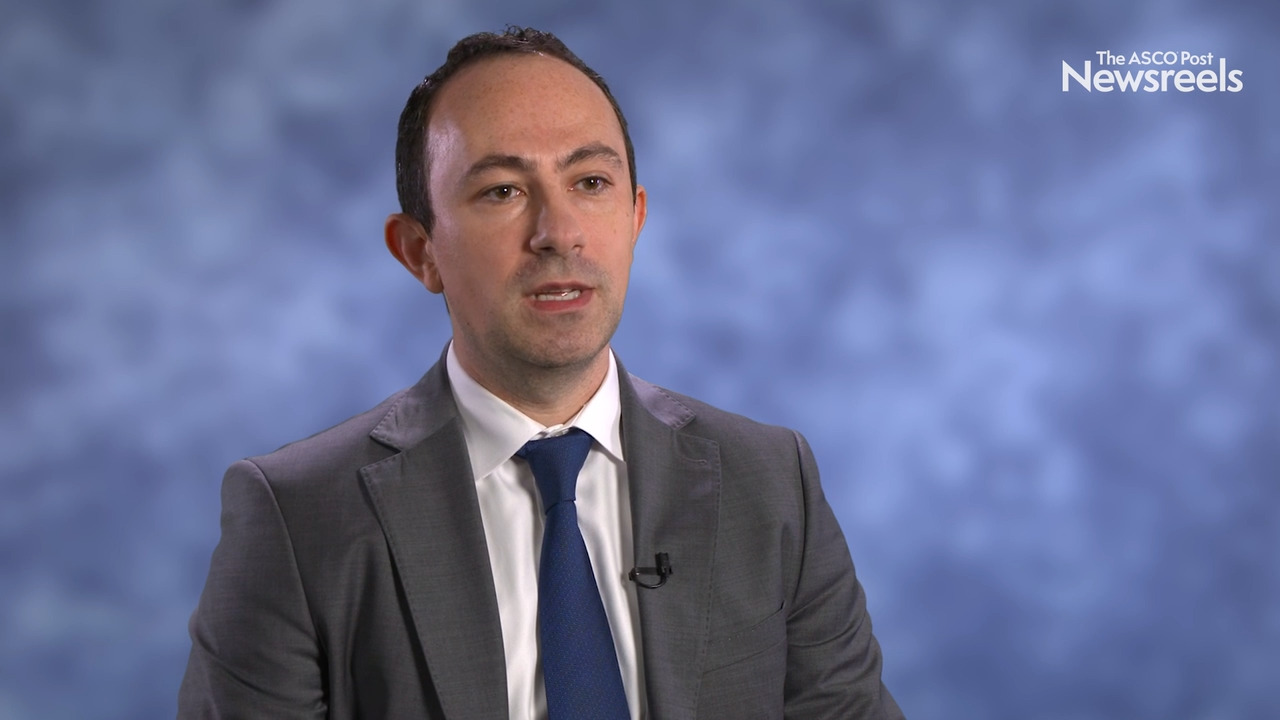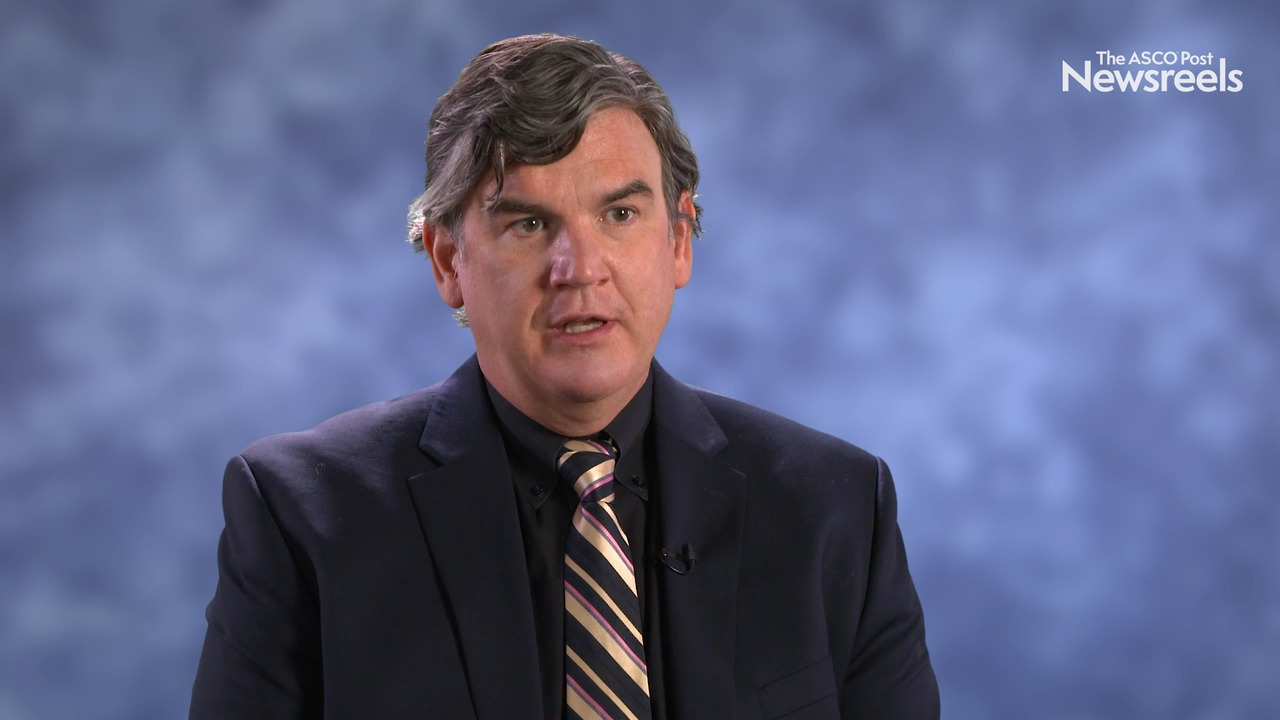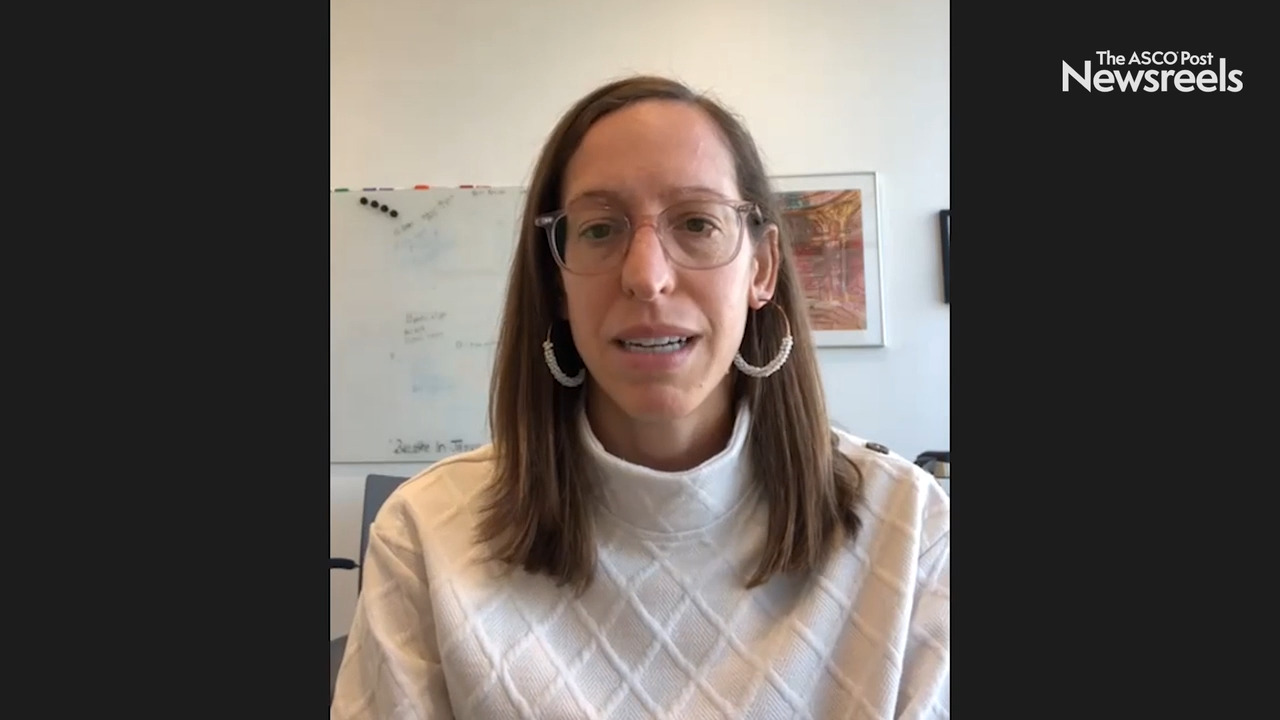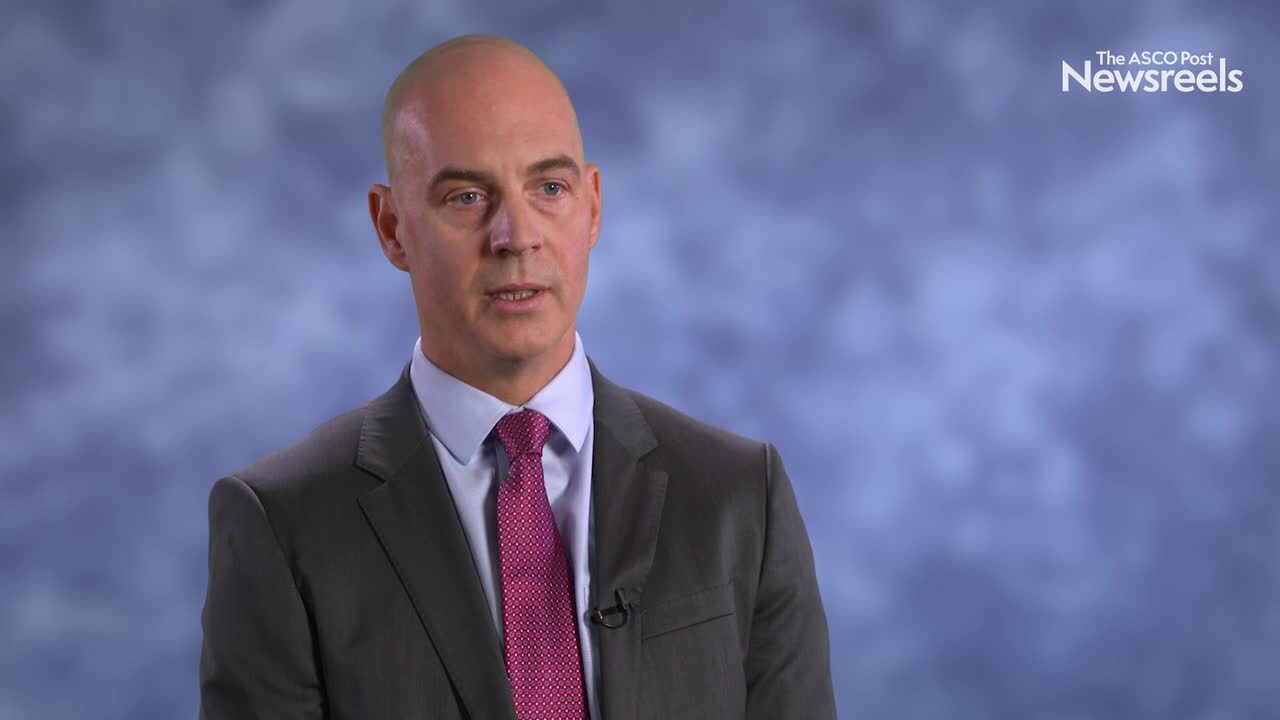Amar U. Kishan, MD, on Prostate Cancer: Impact of Androgen-Deprivation Therapy With Radiotherapy
2021 ASTRO Annual Meeting
Amar U. Kishan, MD, of the University of California, Los Angeles, discusses findings from a meta-analysis of clinical trials in patients with localized prostate cancer. The phase III results suggest that the use of androgen-deprivation therapy (ADT) or prolonged adjuvant ADT with radiotherapy may benefit patients with localized prostate cancer. Further biomarkers are needed to better personalize treatment intensification (Abstract 8).
The ASCO Post Staff
C. Jillian Tsai, MD, PhD, of Memorial Sloan Kettering Cancer Center, discusses results from the first randomized trial of stereotactic body radiation therapy (SBRT) to treat oligoprogressive, metastatic lung and breast cancers. The standard of care for patients with these types of tumors is to switch to a different systemic treatment. Adding local therapy such as SBRT may help treat drug-resistant lesions (Abstract LBA3).
The ASCO Post Staff
Youssef Zeidan, MD, PhD, of Florida International University and the Lynn Cancer Institute, discusses the advances in radiotherapy planning and delivery that have reduced cardiac radiation exposure in patients with HER2-positive breast cancer who are treated with radiotherapy and trastuzumab (Abstract 12).
The ASCO Post Staff
Matthew Manning, MD, of Cone Health Cancer Center, discusses findings that showed changes to the way cancer care is delivered may help eliminate racial disparities in survival among patients with early-stage lung and breast cancers. Identifying and addressing obstacles that kept patients from finishing radiation treatments for cancer were associated with improved 5-year survival rates for all patients (Abstract 53).
The ASCO Post Staff
Erin Murphy, MD, of Cleveland Clinic, discusses new data that show no apparent difference in cognitive performance up to 2 years post-treatment among adults with low-grade glioma who were treated with concurrent radiotherapy and temozolomide (Abstract 3258).
The ASCO Post Staff
Mark K. Buyyounouski, MD, MS, of Stanford University, discusses phase III results from the NRG Oncology GU003 trial, which showed that, post-prostatectomy, using fewer—but higher—doses of radiation does not appear to increase long-term side effects or reduce quality of life when compared with conventional radiation treatment (Abstract 3).





